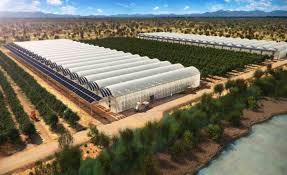
Breaking News
 EXCLUSIVE: "The HUGE Elephant In The Room Is Actually What Jeffrey Epstein Was Best At..."
EXCLUSIVE: "The HUGE Elephant In The Room Is Actually What Jeffrey Epstein Was Best At..."
 EXCLUSIVE INTERVIEW: Republican Candidate For Texas Governor "Doc" Pete Chambers Joins...
EXCLUSIVE INTERVIEW: Republican Candidate For Texas Governor "Doc" Pete Chambers Joins...
 Epstein Files Trigger Political Fallout Across Europe
Epstein Files Trigger Political Fallout Across Europe
 Conjoined twin 'influencers' who have gained more than 280,000 followers with their intimate
Conjoined twin 'influencers' who have gained more than 280,000 followers with their intimate
Top Tech News
 How underwater 3D printing could soon transform maritime construction
How underwater 3D printing could soon transform maritime construction
 Smart soldering iron packs a camera to show you what you're doing
Smart soldering iron packs a camera to show you what you're doing
 Look, no hands: Flying umbrella follows user through the rain
Look, no hands: Flying umbrella follows user through the rain
 Critical Linux Warning: 800,000 Devices Are EXPOSED
Critical Linux Warning: 800,000 Devices Are EXPOSED
 'Brave New World': IVF Company's Eugenics Tool Lets Couples Pick 'Best' Baby, Di
'Brave New World': IVF Company's Eugenics Tool Lets Couples Pick 'Best' Baby, Di
 The smartphone just fired a warning shot at the camera industry.
The smartphone just fired a warning shot at the camera industry.
 A revolutionary breakthrough in dental science is changing how we fight tooth decay
A revolutionary breakthrough in dental science is changing how we fight tooth decay
 Docan Energy "Panda": 32kWh for $2,530!
Docan Energy "Panda": 32kWh for $2,530!
 Rugged phone with multi-day battery life doubles as a 1080p projector
Rugged phone with multi-day battery life doubles as a 1080p projector
 4 Sisters Invent Electric Tractor with Mom and Dad and it's Selling in 5 Countries
4 Sisters Invent Electric Tractor with Mom and Dad and it's Selling in 5 Countries
Drought-Proof 'Cooling Houses' Use Saltwater and Cardboard to Grow Tons of...

Saltwater and dry desert climates may not seem like a good recipe for growing healthy produce, but that is exactly what a group of scientists has managed to do.
Researchers from the UK-based Seawater Greenhouse company have discovered a drought-proof way to farm fruits and vegetables simply by using solar power and saltwater for irrigation and cooling.
The company has launched plantation projects in arid regions such as Australia, Abu Dhabi, Somaliland, Oman, and Tenerife. Despite the harsh climate of these locations, the plantations are able to grow thousands of pounds of produce simply by making "cooling houses" out of thick walls of dampened cardboard.
While glass greenhouses are designed to keep gardens moist and warm, the cardboard structures use "evaporative cooling" to keep the interior of the plantation structures humid and cool.
The design of the corrugated cardboard panels helps to cool down the wind coming from the outside of the structure. At the same time, a small solar-powered pump dispenses seawater at the top of the panels so that it can trickle down through the walls of the cardboard for evaporation.
This "evaporative cooling" technique creates the perfect conditions for farming produce in drought-stricken regions.



